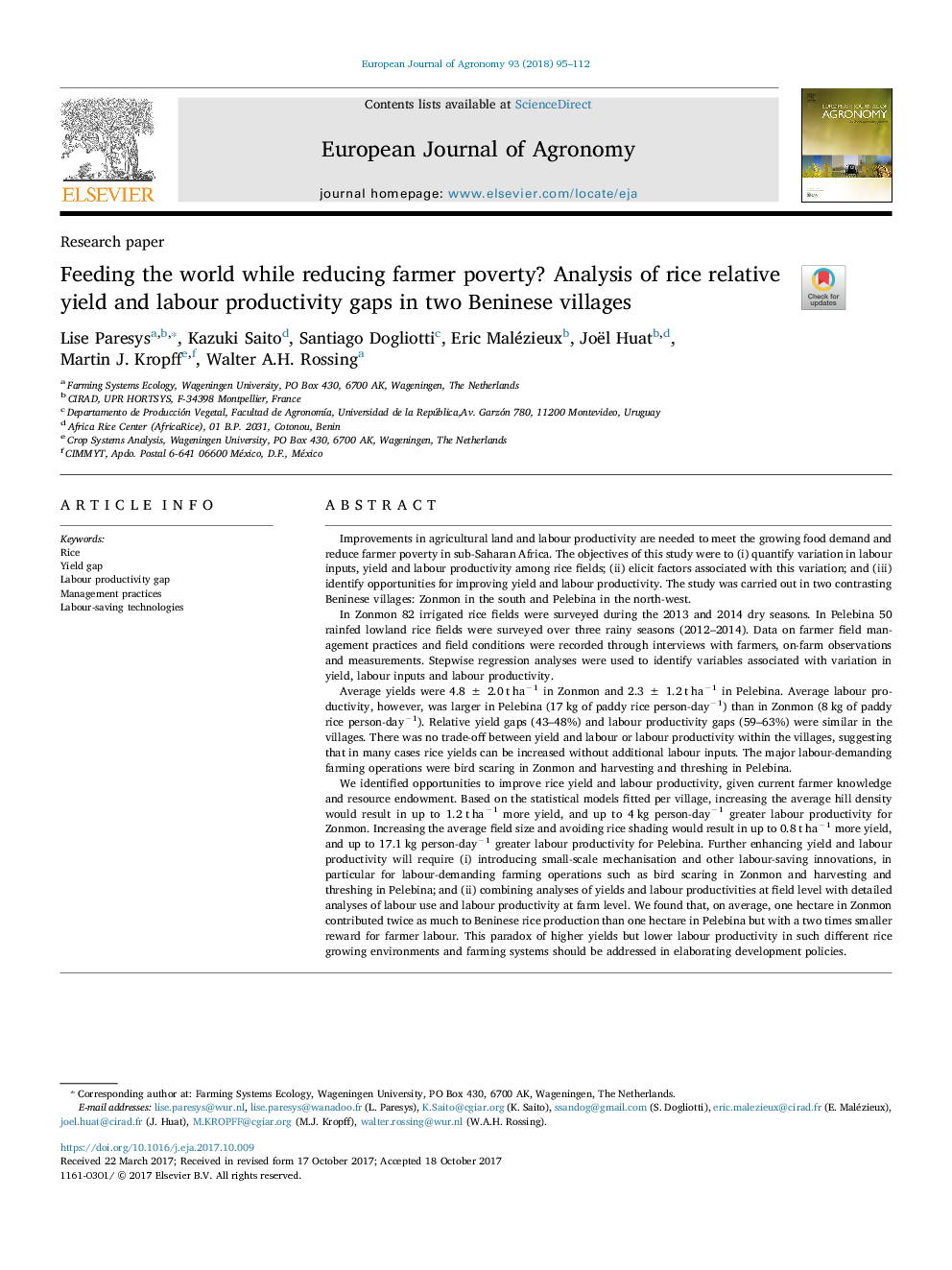ترجمه فارسی عنوان مقاله
تغذیه جهان در حالی که فقر کشاورزان را کاهش می دهد؟ تجزیه و تحلیل عملکرد نسبی برنج و شکاف بهره وری کار در دو روستای بنینی
عنوان انگلیسی
Feeding the world while reducing farmer poverty? Analysis of rice relative yield and labour productivity gaps in two Beninese villages
| کد مقاله | سال انتشار | تعداد صفحات مقاله انگلیسی |
|---|---|---|
| 135914 | 2018 | 18 صفحه PDF |
منبع

Publisher : Elsevier - Science Direct (الزویر - ساینس دایرکت)
Journal : European Journal of Agronomy, Volume 93, February 2018, Pages 95-112
ترجمه کلمات کلیدی
برنج، شکاف تولید، شکاف کارآیی کار، تمرین های مدیریتی، فن آوری های صرفه جویی در کار،
کلمات کلیدی انگلیسی
Rice; Yield gap; Labour productivity gap; Management practices; Labour-saving technologies;

